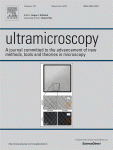 Ultramicroscopy has retracted a paper it published earlier this year after the corresponding author admitted to submitting the paper without the consent of his colleagues.
Ultramicroscopy has retracted a paper it published earlier this year after the corresponding author admitted to submitting the paper without the consent of his colleagues.
The article, “The post-peak spectra in electron energy loss near edge structure,” came from a group led by one Feng Tian, a materials scientist at Shanghai University for Science and Technology. The other authors were Peter Shattschneider and Micheal Stoger-Pollach, of the Vienna University of Technology. Except that they weren’t.
According to the retraction notice: Continue reading Phantom authorship forces retraction of electron paper








